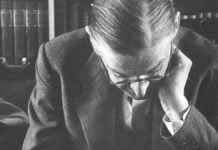John R Searle’s essay Literary Theory and Its Discontents, published in New Literary History in 1994, critically examines contemporary literary theory, mainly focusing on the nature of textual meaning and the interplay between authorial intention, reader interpretation, and linguistic conventions.
Distinction Between Literary Theory and Criticism
Searle begins by distinguishing between “literary theory,” which delves into abstract principles about textual meaning, and “literary criticism,” which involves the practical analysis and interpretation of literary works. He emphasises that his focus is on the former, aiming to address foundational issues concerning how texts convey meaning.
Examination of Reader-Dependent Meaning
The essay critiques theorists like Stanley Fish, who argue that a text’s meaning depends entirely on the reader’s interpretation. Searle challenges this view by asserting that while readers play a role in interpreting texts, meaning is not solely constructed by them but anchored in linguistic conventions and authorial intent.
Critique of Indeterminacy in Meaning
Searle addresses Jacques Derrida’s concept of the “indeterminacy” of meaning, which suggests that texts inherently lack fixed meaning due to the fluidity of language. He counters this by arguing that, despite the complexities of language, communication relies on shared conventions that provide stability to meaning.
Emphasis on Authorial Intention
A significant portion of the essay is dedicated to defending the role of authorial intention in determining textual meaning. Searle posits that understanding an author’s intended meaning is crucial for accurate interpretation, as it grounds the text within a specific communicative context.
Analysis of Linguistic Principles
Searle introduces fundamental linguistic principles to support his arguments, emphasising the conventional nature of language and the importance of context in interpretation. He critiques approaches that overlook these principles, suggesting that they lead to misunderstandings about how meaning is constructed and conveyed.
Call for Clarity in Literary Theory
The essay concludes with a call for greater clarity and rigour in literary theory. Searle advocates for approaches that acknowledge the complexities of language and interpretation without descending into obscurantism or relativism, aiming to bridge the gap between philosophical insights and literary analysis.
Rigorous Philosophical Analysis
Searle’s essay is notable for applying analytical philosophy to literary theory. His methodical approach provides a clear framework for understanding complex issues related to meaning and interpretation, offering a counterbalance to more relativistic or deconstructionist perspectives.
Defence of Authorial Intention
Searle reasserts the importance of the creator’s role in meaning-making by emphasising authorial intention. This stance challenges theories that marginalise the author’s influence, advocating for a more balanced consideration of both author and reader in the interpretive process.
Critique of Extreme Reader-Response Theories
Searle’s critique of theories that emphasise the reader’s role highlights potential pitfalls of such approaches, including the risk of subjective relativism, where any interpretation becomes equally valid. His arguments encourage a more structured understanding of textual meaning.
Engagement with Deconstruction
The essay’s engagement with deconstruction, particularly Derrida’s ideas, demonstrates Searle’s willingness to confront influential contemporary theories. His critiques are grounded in linguistic principles, offering an alternative perspective that underscores the stability and conventionality of language.
Contribution to Interdisciplinary Dialogue
Searle’s work bridges the disciplines of philosophy and literary theory, fostering interdisciplinary dialogue. His insights encourage literary theorists to incorporate philosophical rigour into their analyses, promoting a more comprehensive understanding of textual interpretation.
Clarity and Accessibility
Searle’s writing is characterised by clarity and precision despite addressing complex theoretical issues. His arguments are presented logically, making the essay accessible to readers from diverse academic backgrounds and contributing to its enduring relevance in discussions of literary theory.
Literary Theory and Its Discontents offers a compelling critique of contemporary literary theory, particularly concerning the nature of textual meaning and the roles of the author and reader. Searle challenges prevailing theoretical paradigms through rigorous analysis and clear argumentation, advocating for a more balanced and philosophically grounded approach to literary interpretation. His essay remains a significant contribution to debates in literary theory, emphasising the importance of linguistic conventions and authorial intention in understanding texts.





























